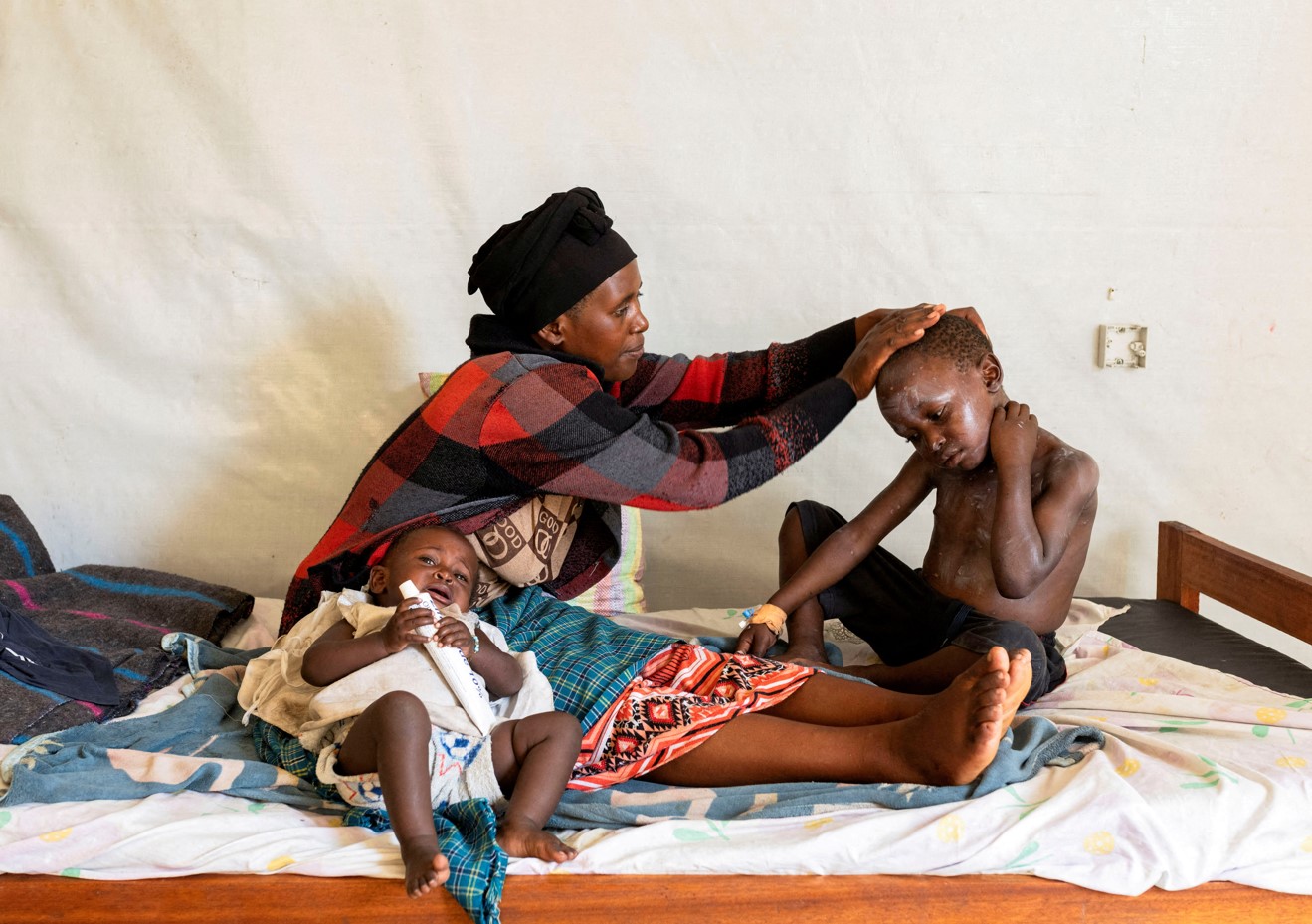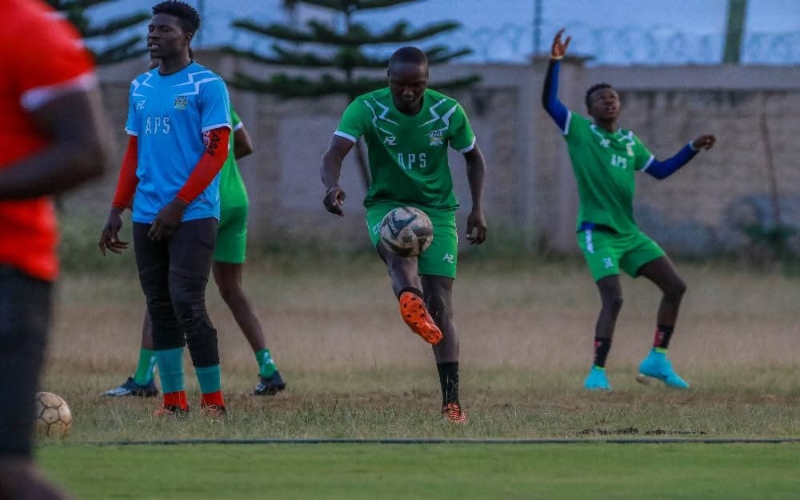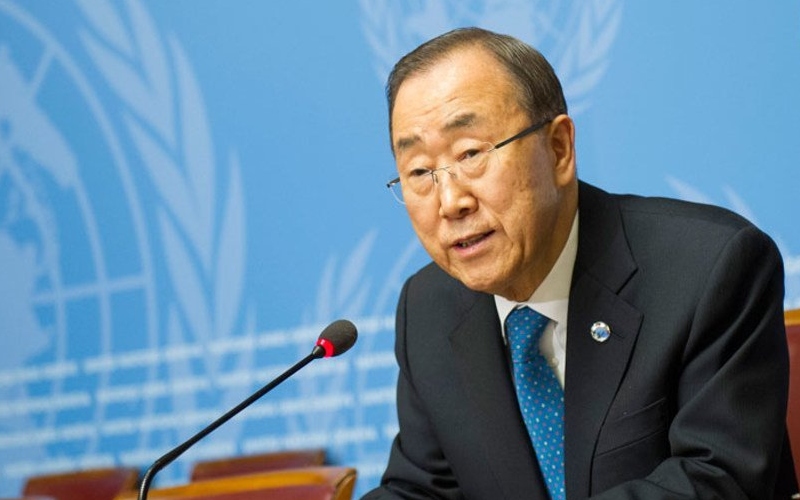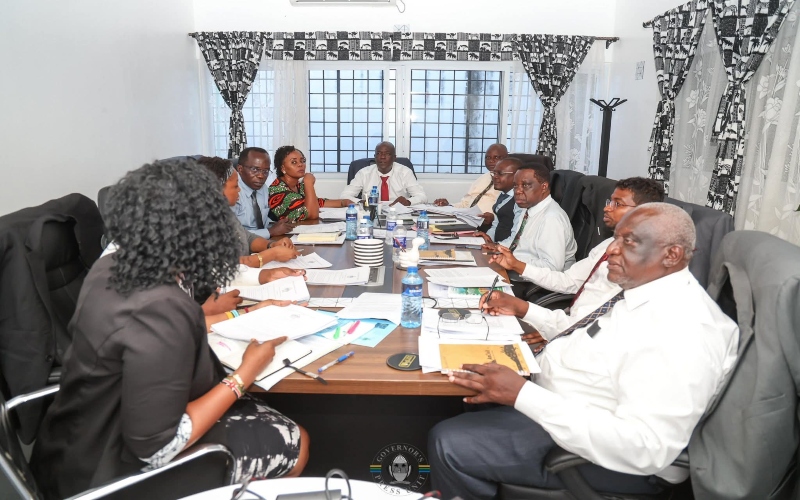Kenya prepares to vaccinate 150,000 refugees against Mpox as global support grows

IOM’s funding request underscores the urgent need to protect these vulnerable groups amid the Mpox outbreak across East, Horn, and Southern Africa.
Kenya is set to vaccinate at least 150,000 refugees and displaced individuals against Mpox. The Ministry of Health announced on Monday that by December, the country will receive two million doses from a Danish manufacturer.
Various organisations are stepping up to support countries affected by Mpox in Africa. Health Emergency Preparedness and Response Authority (HERA) will donate over 215,000 doses to the Africa CDC, Emergent has pledged 50,000 doses, and Bavarian Nordic has committed an additional 40,000 doses.
More To Read
- England confirms new mpox strain: What you need to know
- Mpox detected in Garissa, patient isolated as officials trace contacts
- Namibia declares mpox outbreak after confirmed case in Swakopmund
- Mpox cases in Africa surpass 190,000, deaths near 2,000: Africa CDC
- Kenya battles rising mpox infections as WHO lifts global emergency
- Mpox deaths near 2,000 in Africa since 2024 amid recent decline in cases: Africa CDC
Emergent also announced a donation of 50,000 Mpox vaccine doses, along with the necessary diluent solution, needles, and syringes, to Direct Relief.
France will contribute 100,000 doses to affected countries and is preparing vaccination centres.
The International Organization for Migration (IOM) has highlighted the heightened risk faced by migrants, internally displaced people, and highly mobile populations due to their living conditions and transient lifestyles.
IOM’s funding request underscores the urgent need to protect these vulnerable groups amid the Mpox outbreak across East, Horn, and Southern Africa.
IOM aims to vaccinate 1,960,000 individuals in Kenya, Burundi, the Democratic Republic of the Congo, Eswatini, Malawi, Mozambique, Zambia, South Africa, Rwanda, Uganda, Tanzania, and Zimbabwe. To achieve this, IOM is seeking $18.5 million to enhance the capacity of health workers, improve disease monitoring, and curb cross-border transmission.
As of now, over 15,000 suspected Mpox cases have been reported in the DRC, with 537 deaths, according to the World Health Organization. Confirmed cases have also emerged in Kenya, Burundi, Rwanda, South Africa, and Uganda.
Mpox is transmitted from animals to humans and through close contact with infected individuals or animals, via respiratory droplets, blood, body fluids, or lesions. Symptoms include fever, rash, headaches, sore throat, muscle aches, swollen lymph nodes, and back pain.
A new variant of the mpox virus, clade Ib, has emerged in all affected countries except South Africa. This variant, which has a fatality rate of 10 per cent, is particularly alarming due to its potential for rapid spread, especially among young children.
The Democratic Republic of Congo (DRC) has been a major source of the virus’s transmission across the region, as the country grapples with the devastating effects of conflict and the collapse of its healthcare infrastructure.
Burundi has been the hardest hit, reporting 170 confirmed mpox cases as of August 20, 2024, across 26 of its 49 districts.
Nearly 60 per cent of those infected are children and adolescents under the age of 20, with children under five making up 21 per cent of the cases. Women and girls are also disproportionately affected, representing 45.3 per cent of the infected population.
The government has assured that Kenya will receive Mpox vaccines to address the public health emergency declared by the WHO and Africa CDC.
Health Director-General Patrick Amoth confirmed that Kenya will receive two million doses from the Denmark-based Nordic manufacturer by December. He clarified that the government will prioritise these doses for the most vulnerable populations, similar to the approach taken during the COVID-19 pandemic.
"At one point, we shall bring vaccines back into the country. The Africa CDC has indicated that Africa requires 10 million doses, and we are assured by the Nordic manufacturer that by the end of the year, we will have approximately two million doses," said Amoth.
The Ministry of Health has also implemented additional measures, including enhanced communication, increased surveillance, and screening of over 300,000 travellers. The country’s only confirmed case, detected on July 31, involved a 42-year-old truck driver who has since fully recovered.
Testing of suspected cases is ongoing at the Ministry of Health National Public Health laboratories, with support from partner institutions like Kemri.
Mpox, caused by the monkeypox virus, can lead to a painful rash, swollen lymph nodes, and fever. While most individuals recover fully, some may experience severe illness. The outbreak is particularly driven by transmission linked to sexual contact and commercial sex networks.
The DRC is set to receive its vaccine shipment next week, which should help mitigate risks for neighbouring countries.
The World Health Organization has called for a significant increase in vaccine production and emphasised that vaccination campaigns must be a priority for affected nations.
The latest statistics highlight the critical nature of the Mpox crisis, prompting the Africa Centres for Disease Control and Prevention (Africa CDC) to call for a coordinated effort from all stakeholders.
South African President Cyril Ramaphosa, the African Union (AU) Champion for Pandemic Prevention, Preparedness, and Response, has voiced concern about the "alarming" rapid spread of Mpox across the continent.
With at least 18,910 cases and 541 deaths reported in 12 AU member states, Ramaphosa has urged for swift action and the mobilization of reso
Top Stories Today











































